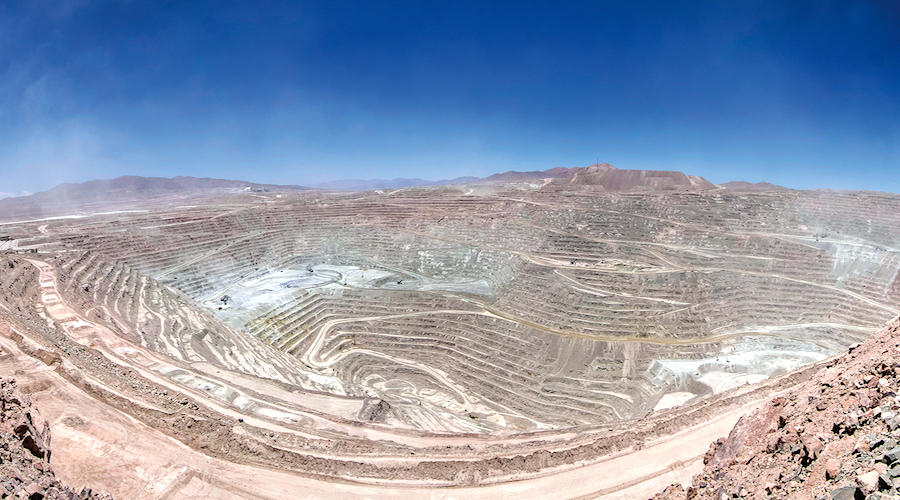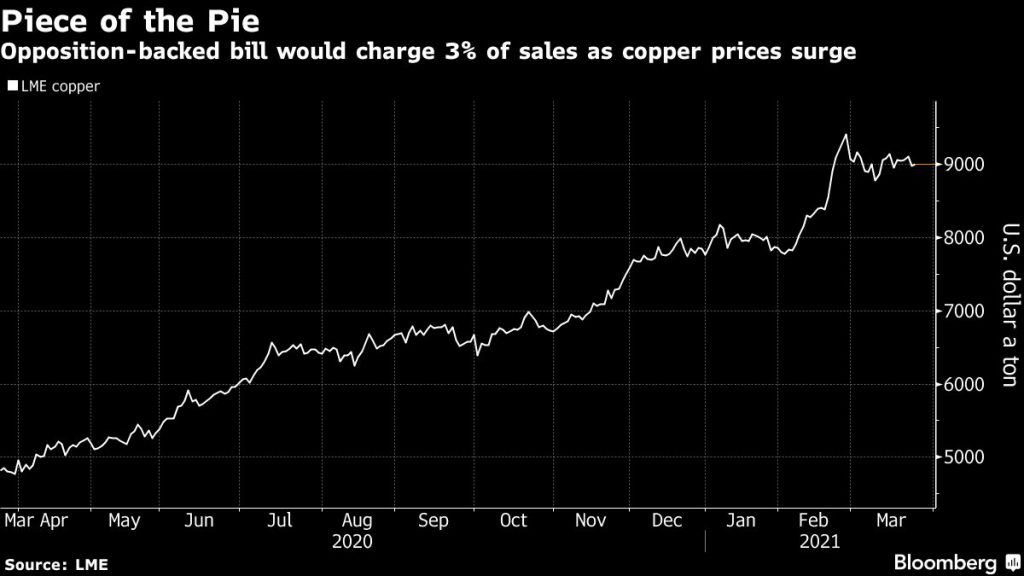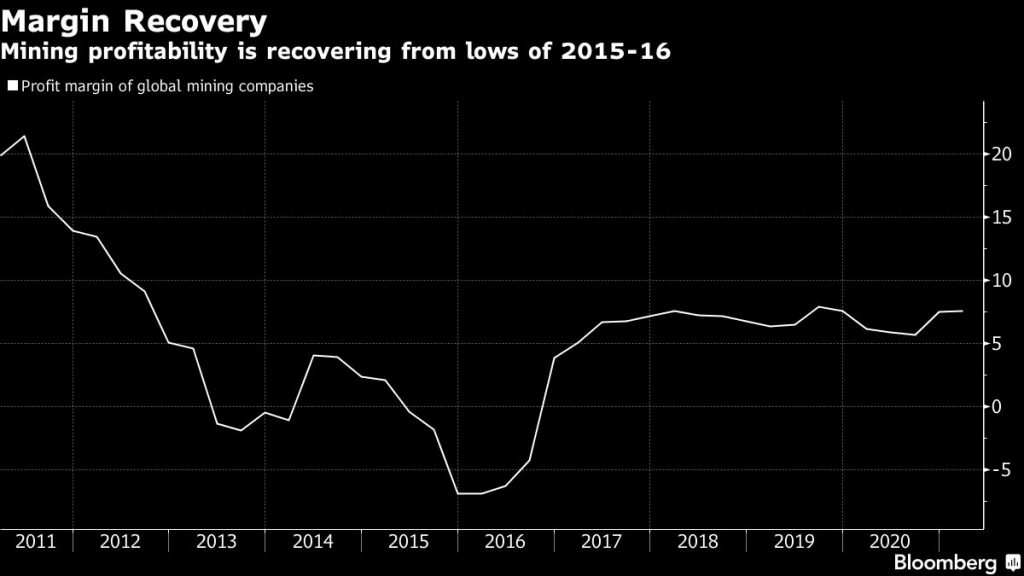Chile lawmakers want a bigger share of the copper windfall

Chile’s lower house approved a proposed royalty on copper and lithium sales as lawmakers seek a bigger contribution from some of the world’s top producers toward social and environmental projects.
The proposal, which was introduced in 2018 by opposition lawmakers and has gained momentum amid rallying metal prices, will go back to committees after some representatives sought modifications. The bill has yet to pass through senate.
A 3% tax on copper and lithium produced by companies such as BHP Group and Albemarle Corp. would fund regional development projects, responding to the rising social and environmental standards of investors and supply chains. Countries around the region are also looking at new revenue sources to help citizens recover from the pandemic.
“This is a landmark bill,” Christian Democrat Deputy Ivan Flores said. “It’s part of what our country needs — greater economic and social justice and an end to privileges that big companies have had.”
Still, even if the royalty bill gets through senate, the government of President Sebastian Pinera could seek to block its passage via the constitutional court given it was introduced by the opposition. Ruling coalition lawmakers laid the groundwork for taking the bill to court by presenting a so-called constitutional reservation.

The proposal is unnecessary and risks thwarting investment, according to government and industry representatives. Responding to criticism that Chile didn’t tax producers enough in the last supercycle, Energy and Mining Minister Juan Carlos Jobet said the current royalty system will generate more after a surge in prices pushed up earnings.
In his first term in office a decade ago, Pinera introduced a complicated system of payments that now charges large producers a variable rate on operating profit of as much as 14%. A new tax on sales wouldn’t bring in more than the current system, according to Diego Hernandez, head of mining society Sonami. Mining Council boss Joaquin Villarino warned against rushing through legislation just because copper has traded above $4 a pound for several weeks.
While consensus is building that highly profitable sectors such as mining should help finance the pandemic recovery, a heavier tax burden would add to rising costs associated with labor and the environment, BTG Pactual raw-materials analyst Cesar Perez-Novoa said.
“When doing the math, the cost competitiveness of Chile as a mining jurisdiction comes down,” he said. “So it matters.”

(By James Attwood and Tom Azzopardi, with assistance from Valentina Fuentes)
{{ commodity.name }}
{{ post.title }}
{{ post.date }}




Comments
Reinaldo
Always investors will want someting profitable, but now chile only want a a good share of the cake. Enougth of this leeches who are suking on us. A chilean